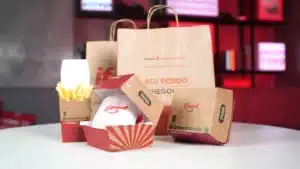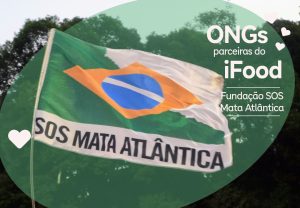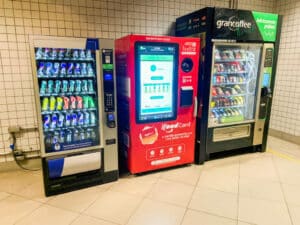In 2050, the world's population is expected to reach 9.7 billion people, according to a forecast made by the UN (United Nations). One of the biggest challenges in this scenario will be how to live sustainably on a planet with 2 billion more people than we have today.
This perspective encourages us to rethink, now, our habits and our business. Therefore, achieving a level of production and consumption aligned with available natural resources is one of the goals established by the UN in its Sustainable Development Goals, the famous SDGs.
Taking a closer look at this goal, we will see that one of the main objectives to be achieved in 2030 is to halve the current per capita food waste. This means reducing the level of food loss throughout the entire production and supply chain, from farm to table.
As signatory of the UN Global Compact, iFood is committed to following the Sustainable Development Goals and is already putting into practice initiatives to combat waste. After all, innovating in the food field is our business.
As Everyone at the Table, for example, we want to encourage industries and retailers to donate surplus food that is fit for consumption to feed those who need it most. And, of course, inspire more companies to join us in this network of combat to hunger and waste. It is important to emphasize that many large companies already have good surplus redistribution policies and together we can enhance this, sharing the best practices for combating waste with small and medium-sized companies and markets.
Another solution is the urban gardens, like the one that iFood grows in its headquarters building and the ones we finance in public schools in São Paulo. As these plantations are located within cities, the waste that generally occurs along the entire chain, from the countryside, drops from 40% to 2%, according to estimates from our partner Begreen. In addition to reducing waste, school gardens also provide healthy and diverse food and are excellent environmental education tools for children and teenagers. That's what it means to feed the future of the world.
Zero plastic pollution
The amount of waste we generate and dispose of in the environment is also a concern in UN Objective number 12. So much so that another of the established goals is to substantially reduce waste generation by 2030 through more conscious consumption, recycling and reuse.
This is also a concern that guides our environmental goals program, the iFood Regenerates. But don't wait until 2030: by 2025 we want to achieve the two major goals of this pillar — ending plastic pollution from delivery operations and transforming iFood into a company that neutralizes 100% of its gas emissions that cause greenhouse effect with half of deliveries being made by clean modes.
Here, the journey has already begun. In 2021, for example, we invested in expanding the offer of electric bicycles to our delivery partners and in the research and development of sustainable packaging —we also signed a commitment with UNEP (United Nations Environment Programme) and Oceana (ocean protection NGO) to reduce the supply of single-use plastics in our deliveries.
And this is just the beginning. For us, the growth of a business that fuels a better future goes hand in hand with the regeneration of the environment. We know that there is still a long way to go in this regard, but our commitment to generating a positive impact — on the environment and on people — is perennial. And it extends well beyond 2030.


